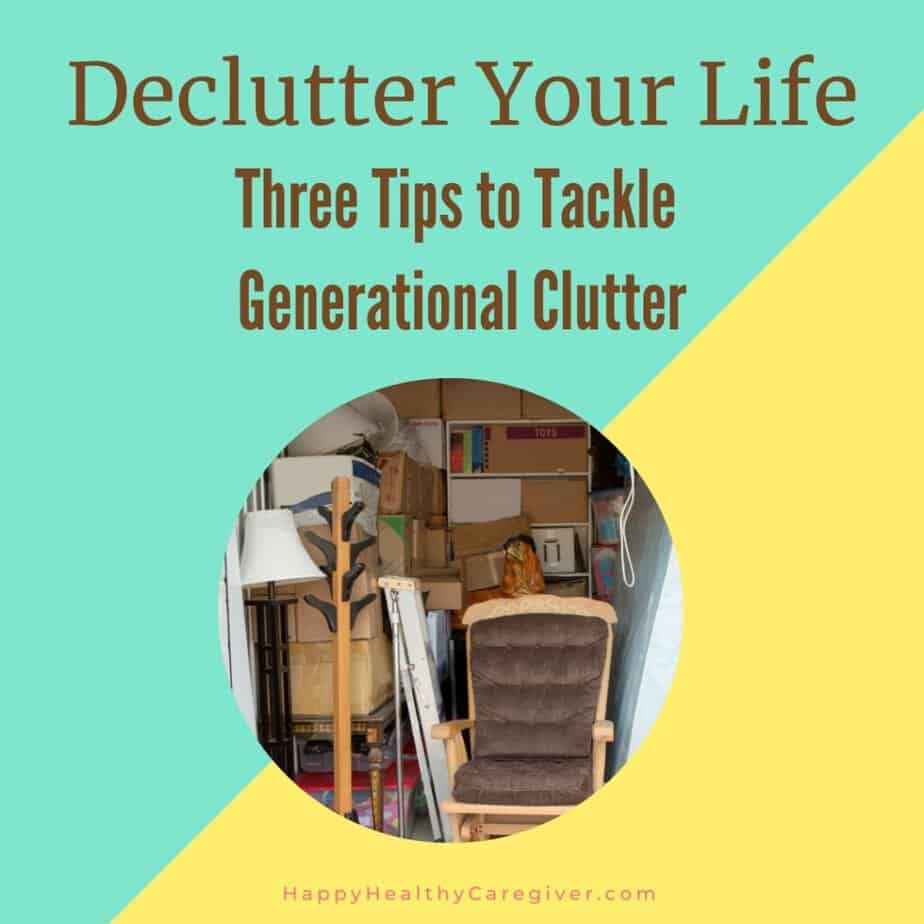A guest post written for Happy Healthy Caregiver by Karen Purze
I keep hearing if I meditate, fill my “empty cup”, and sprinkle essential oils around my pillow, I’ll be able to relax. Well, I’m managing my mom’s financial life and personal needs on top of my own and here’s my reality: sometimes self-care looks like paperwork.
When I spend time to get just a little bit ahead of the bills, insurance errors, and mystery charges, it feels really good. It gives me back the energy I spend thinking about these hard-to-prioritize ‘to dos’.
If you help a parent, friend, or relative manage their financial or household accounts — or just want to get your own financial ‘house’ in order — here’s a five-step process I follow at least once a year to make sure I’m not trickling away money or missing opportunities to save more.

#1: Consider
First, take a step back. Think beyond the bank account and consider expenses across these common budgeting categories:
- Housing
- Utilities
- Health Care
- Consumer Debt
- Food and Groceries
- Insurance
- Personal Care
- Transportation
- Entertainment
- Savings
- Emergency Fund
#2: Consolidate
When I do this, I am always surprised by something. When I first took over my parents’ daily money management tasks, there were several recurring charges for services they didn’t use. I recently combined two 401k accounts to make it easier to manage my retirement investments. Do you have any accounts that could be consolidated? Make those calls! Get your information in one place and assess: what steps can you take today to make it easier to pay the monthly bills, invest for the future, and save for financial “shocks” (unplanned expenses.)
#3 Cancel
Next, comes the fun part: start canceling things you don’t need. The recurring wireless charge on the iPad you don’t use anymore? Cancel! (Hold on while I go do that…) The subscription which went ‘live’ after the free trial ended because you forgot to cancel it? Cancel it today!
Are there expense categories you can completely eliminate or revolutionize by changing habits? Get creative!
#4 Change
After you’ve consolidated, think about shopping around for better deals on your ‘must have’ expenses. You might be surprised how many of your expenses can be negotiated, especially if you are a long-term customer. If you’ve taken a ‘set it and forget it’ approach to insurance, entertainment, or even debt, it might be time to call and ask for a better deal.
I recently reduced my internet/phone/cable bill by over $100 a month by signing up for the “Latino” package with my provider. Customer service (when you finally reach them) will likely have different packages, deals, or discount authority you’ll only find out about if you ask. Some of these products are complicated on purpose. Get on the phone and ask for help!
#5 Configure
Now, look around. Is there any paper hanging around your desk? Can you sign up for paperless billing? Automate as much as possible. (This is especially important if you are a long distance financial caregiver.)
If you haven’t automated savings, this is a good time to do so. My bank has a ‘keep the change’ program which rounds up to the nearest dollar and saves the extra money from debit card purchase. It’s a small thing, but it’s satisfying. If you have a regular income, talk to your employer to see if you can send money to more than one account directly from your paycheck.
If your parent still gets a paper check from Social Security, work with them to set up direct deposit. Again, get creative.
Finding “You” Time
In my busiest caregiving years, I took time off work to take advantage of weekday business hours and make all these calls in the privacy of my own home. In other years, I found so much to do in the first “Consider” step, that I spent time each week taking care of my parents’ affairs and getting progressively more organized.
My advice for financial caregivers? Find a rhythm, take small steps, and relish the victories. If you’ve made one thing easier to manage going forward, saved a few (or a few hundred) dollars, taken care of one annoying administrative task, congratulate yourself.
The time you spend on the “paperwork” will enable you to spend more on the things you really love to do with the people you care most about.
I, for one, think this counts as self-care!
Additional Resources:
- Managing Someone Else’s Money, a guide from the Consumer Financial Protection Bureau
- Emergency Financial First Aid Kit [PDF], a guide to financial preparedness from the Emergency Federal
- Organization Tips to help the Family Caregiver Manage a Crisis, 8 tips to help you be ready for the unexpected caregiving emergency
Karen Purze is the author of Life In Motion: A Guide for Gathering Life’s Vital Details, a workbook to help people get their affairs in order. She blogs about end-of-life and emergency planning for “amateurs” at lifeinmotionguide.com. Karen has also been a featured Caregiver Spotlight guest on the Happy Healthy Caregiver Podcast.



